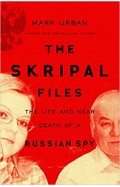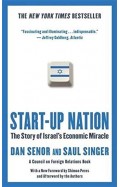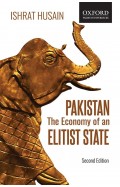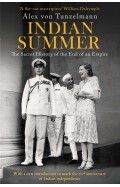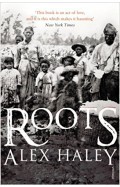- Home
- Non Fiction
- Biography/Autobiography
- Out of the Frame: The Struggle for Academic Freedom in Israel
Out of the Frame: The Struggle for Academic Freedom in Israel
By: Ilan Pappe
-
Rs 1,347.50
- Rs 2,450.00
- 45%
You save Rs 1,102.50.
Due to constant currency fluctuation, prices are subject to change with or without notice.
Even before he wrote his bestselling book The Ethnic Cleansing of Palestine, historian Ilan Pappe was a controversial figure in Israel. In Out of the Frame, he gives a full account of his break with mainstream Israeli scholarship and its consequences. Growing up in a conventional Israeli community influenced by the utopian visions of Theodor Herzl, Pappe was barely aware of the Nakbah in his high school years. Here he traces his journey of discovery from the whispers of Palestinian classmates to his realisation that the 'enemy's' narrative of the events of 1948 was correct. After completing his thesis at Oxford University based on recently declassified documents in the early 1980s, he returned to Palestine determined to protect the memory of the Nakbah and struggle for the rectification of its evils. For the first time he gives the details of the formidable opposition he faced in Israel, including death threats fed by the media, denunciations by the Knesset and calls for him to be sacked from his post at Haifa university. This revealing work, written with dignity and humour, highlights Israel's difficulty in facing up to its past and forging a peaceful, inclusive future in Palestine.
Even before he wrote his bestselling book The Ethnic Cleansing of Palestine, historian Ilan Pappe was a controversial figure in Israel. In Out of the Frame, he gives a full account of his break with mainstream Israeli scholarship and its consequences. Growing up in a conventional Israeli community influenced by the utopian visions of Theodor Herzl, Pappe was barely aware of the Nakbah in his high school years. Here he traces his journey of discovery from the whispers of Palestinian classmates to his realisation that the 'enemy's' narrative of the events of 1948 was correct. After completing his thesis at Oxford University based on recently declassified documents in the early 1980s, he returned to Palestine determined to protect the memory of the Nakbah and struggle for the rectification of its evils. For the first time he gives the details of the formidable opposition he faced in Israel, including death threats fed by the media, denunciations by the Knesset and calls for him to be sacked from his post at Haifa university. This revealing work, written with dignity and humour, highlights Israel's difficulty in facing up to its past and forging a peaceful, inclusive future in Palestine.
Out of the Frame: The Struggle for Academic Freedom in Israel
By: Ilan Pappe
Rs 1,347.50 Rs 2,450.00 Ex Tax :Rs 1,347.50
The Idea of Israel: A History of Power and Knowledge
By: Ilan Pappe
Rs 1,946.25 Rs 2,595.00 Ex Tax :Rs 1,946.25
Lobbying for Zionism on Both Sides of the Atlantic
By: Ilan Pappe
Rs 6,745.50 Rs 7,495.00 Ex Tax :Rs 6,745.50
A Very Short History of the Israel–Palestine Conflict
By: Ilan Pappe
Rs 2,335.50 Rs 2,595.00 Ex Tax :Rs 2,335.50
Zubin Mehta: A Musical Journey (An Authorized Biography)
By: VOID - Bakhtiar K. Dadabhoy
Rs 472.50 Rs 1,050.00 Ex Tax :Rs 472.50
The Skripal Files: The Life and Near Death of a Russian Spy
By: Mark Urban
Rs 627.75 Rs 1,395.00 Ex Tax :Rs 627.75
Start-Up Nation: The Story of Israel's Economic Miracle
By: Dan Senor & Saul Singer
Rs 1,946.75 Rs 2,995.00 Ex Tax :Rs 1,946.75
Pakistan The Economy of an Elitist State
By: Dr. Ishrat Husain, Sarah Nizamani, Shagufta Shabbar and Masood Siddiqui
Rs 927.00 Rs 1,030.00 Ex Tax :Rs 927.00
The Idea of Israel: A History of Power and Knowledge
By: Ilan Pappe
Rs 1,946.25 Rs 2,595.00 Ex Tax :Rs 1,946.25
Indian Summer: The Secret History of the End of an Empire
By: Alex Von Tunzelmann
Rs 2,695.50 Rs 2,995.00 Ex Tax :Rs 2,695.50
Manning Up: How the Rise of Women Has Turned Men into Boys
By: Kay Hymowitz
Rs 646.75 Rs 995.00 Ex Tax :Rs 646.75
The Skripal Files: The Life and Near Death of a Russian Spy
By: Mark Urban
Rs 627.75 Rs 1,395.00 Ex Tax :Rs 627.75
Start-Up Nation: The Story of Israel's Economic Miracle
By: Dan Senor & Saul Singer
Rs 1,946.75 Rs 2,995.00 Ex Tax :Rs 1,946.75
Pakistan The Economy of an Elitist State
By: Dr. Ishrat Husain, Sarah Nizamani, Shagufta Shabbar and Masood Siddiqui
Rs 927.00 Rs 1,030.00 Ex Tax :Rs 927.00
The Idea of Israel: A History of Power and Knowledge
By: Ilan Pappe
Rs 1,946.25 Rs 2,595.00 Ex Tax :Rs 1,946.25
Indian Summer: The Secret History of the End of an Empire
By: Alex Von Tunzelmann
Rs 2,695.50 Rs 2,995.00 Ex Tax :Rs 2,695.50
No recently viewed books available at the moment.
Zubin Mehta: A Musical Journey (An Authorized Biography)
By: VOID - Bakhtiar K. Dadabhoy
Rs 472.50 Rs 1,050.00 Ex Tax :Rs 472.50
Out of the Frame: The Struggle for Academic Freedom in Israel
By: Ilan Pappe
Rs 1,347.50 Rs 2,450.00 Ex Tax :Rs 1,347.50
The Idea of Israel: A History of Power and Knowledge
By: Ilan Pappe
Rs 1,946.25 Rs 2,595.00 Ex Tax :Rs 1,946.25
Lobbying for Zionism on Both Sides of the Atlantic
By: Ilan Pappe
Rs 6,745.50 Rs 7,495.00 Ex Tax :Rs 6,745.50
A Very Short History of the Israel–Palestine Conflict
By: Ilan Pappe
Rs 2,335.50 Rs 2,595.00 Ex Tax :Rs 2,335.50
The Skripal Files: The Life and Near Death of a Russian Spy
By: Mark Urban
Rs 627.75 Rs 1,395.00 Ex Tax :Rs 627.75
Start-Up Nation: The Story of Israel's Economic Miracle
By: Dan Senor & Saul Singer
Rs 1,946.75 Rs 2,995.00 Ex Tax :Rs 1,946.75
Pakistan The Economy of an Elitist State
By: Dr. Ishrat Husain, Sarah Nizamani, Shagufta Shabbar and Masood Siddiqui
Rs 927.00 Rs 1,030.00 Ex Tax :Rs 927.00
The Idea of Israel: A History of Power and Knowledge
By: Ilan Pappe
Rs 1,946.25 Rs 2,595.00 Ex Tax :Rs 1,946.25
Indian Summer: The Secret History of the End of an Empire
By: Alex Von Tunzelmann
Rs 2,695.50 Rs 2,995.00 Ex Tax :Rs 2,695.50












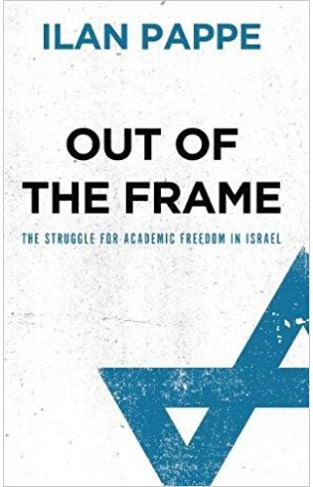
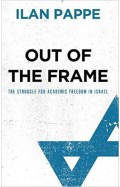

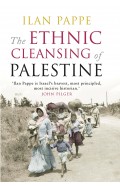



-120x187.jpg?q6)





